Imperfect Produce
Imperfect Produce was started by University of Maryland student Ben Simon along with co-founder Ben Chesler, who was spurred on to reduce food waste after he noticed how much food was going to waste at his school’s cafeterias. The solution was to source ugly produce directly to customer’s homes at a discounted price. They created Imperfect Produce, an organization that has allowed the public to directly make an impact in reducing food waste by signing up to receive weekly boxes of ugly or imperfect produce at an affordable amount (30-50% less than grocery stores). Imperfect produce strives to show the beauty of imperfection. Imperfect Produce is a great solution for those who are looking for affordable and delicious produce, and those looking to do their part in limiting food waste, or even just those who do not have the time to go out and shop for their own produce.
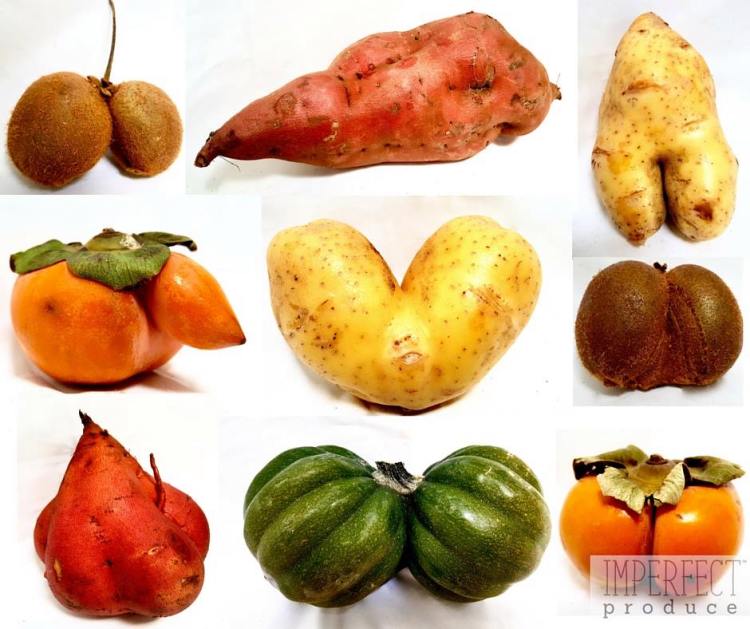
HOW IT WORKS
Imperfect Produce source their ugly produce directly from farms as this helps reduce food waste and support the farmers as they can get a fuller harvest. Rather than leaving the ugly produce in the field to be disposed of in landfills, Imperfect Produce will buy that ugly produce and ship it to you at a discounted price. Once you are signed up, you can choose which items you would like to receive in the box. The box is then delivered to you’re home in an Eco-friendly manner in which the delivery is arranged based on your neighborhood to reduce their carbon footprint. Once you receive your box, you get to enjoy healthy and delicious produce while saving money.
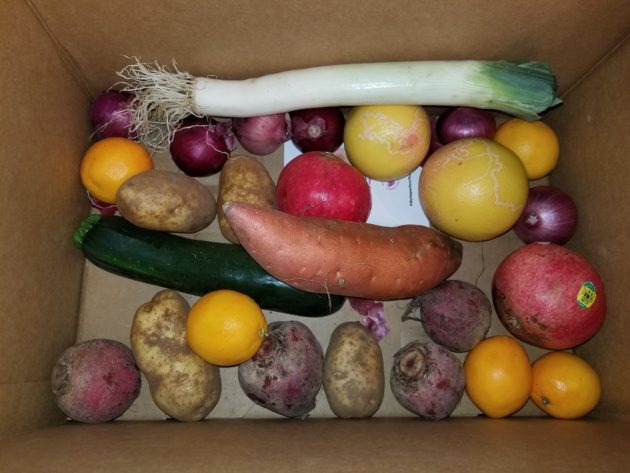
HOW IMPERFECT PRODUCE IS CHANGING THE WORLD ONE BOX AT A TIME
By participating in buying Imperfect produce, you are making a difference by helping to build a sustainable and effective food system, reducing food waste and are helping out many farmers by buying their ugly produce that wouldn’t make it to grocery stores. In return, you are helping to reduce the usage of fossil fuels and water. Imperfect produce has improved access to healthy food and given the public a direct way to make a difference in their community.
Learn More about Imperfect Produce and sign up for your first box at https://www.imperfectproduce.com/
UW sustainability: UW’s Students group implement new biotechnology to combat food wastage in the UW 
“Even though UW administrators are in charge, students should be the lead ”
From Whisper, Campus Sustainability Fund Program at the University of Washington
The project of Student-led project Biogas will blow your mind by applying biogas digester to tackle food waste crisis.
I set up an interview with one of the Campus Sustainability Fund Outreach at the UW sustainability department, Whisper, to explore what types of projects that they have funded in related to food waste issues. Their mission is “to create a sustainable campus and foster an environmentally conscious university culture by funding STUDENT-LED projects that lessen the environmental impacts”.
There are many projects focused on helping communities become more efficient and contribute to our fight against today’s environmental issues. However, there are only two projects in this department directly focused on food waste related issues. By using a biogas digester to transform organic matter and food waste into alternative fuels.
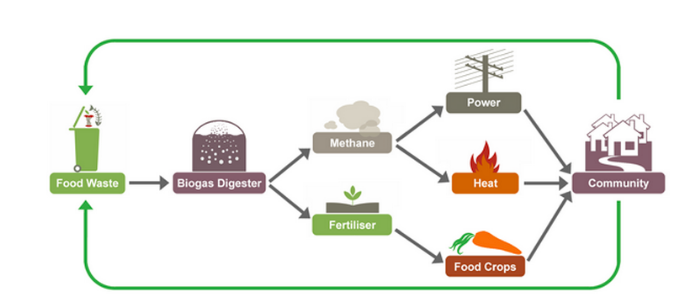
UW Anaerobic Digester: Food Waste, Renewable Energy & Public Health
This project proposal involves building an anaerobic digester on the UW Seattle campus to utilize food waste to produce compost and renewable energy. This project is seeking CSF funding for a feasibility phase trial to test whether there is the capacity to build a 160 square foot anaerobic digester on the UW Seattle Campus.
Reducing the amount of food waste that is hauled to Cedar Grove would reduce carbon emissions from garbage/waste disposal trucks that drive from UW to Cedar Grove. Also, producing nutrient-rich compost that could be applied to the UW farm and Center for Urban Horticulture (and other locations on campus). Last but not least, the food waste is broken down by microbes, which produce methane gas, and the methane gas can be used to power a generator for electricity.
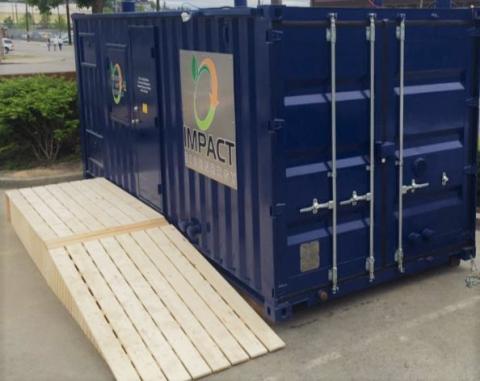
The anaerobic digester costs ~$95,000 and would utilize food waste from the Husky Union Building (HUB), to the Southwest doors to create compost and Renewable Natural Gas.
Interactive Biogas Food Cart
SafeFlame is a local startup, co-founded by Kevin Cussen – a Foster School of Business Evening MBA student. SafeFlame aims to tackle a glut of high profile issues affecting people in developing nations. Globally, more than 3 billion people cook using biomass (wood, animal dung, crop waste, or charcoal). The indoor pollution created by burning these fuels results in over 4.3 million deaths annually with deaths particularly high among women and young children, who spend the most time within the home. Additionally, many of these solid fuels are gathered in an unsustainable manner by local communities causing severe deforestation.
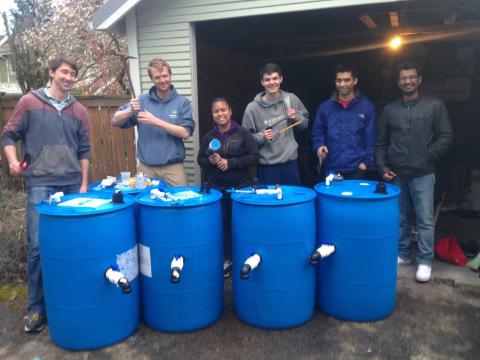
How does the project implement their projects?
Methane is a potent greenhouse gas that is 25 times more effective at trapping solar radiation than carbon. By capturing methane and burning it in a food cart, the methane is broken down into water vapor and carbon dioxide. This reduces the amount of methane released into the atmosphere, the volume of waste entering our landfills, and provides a useful output for the energy.
Safeflame is working on constructing a food cart that has a cookstove installed that runs on biogas. This stove could cook hot dogs or popcorn, which could be sold at events or at high foot traffic areas of campus. These include UW Housing and Food Services and UW Dining who have agreed to provide scheduling and permitting assistance to ensure this project obeys all rules and regulations surrounding the operations of such vehicles. They are also accepting volunteers to work on this project with them.
Conclusions
In order to tackle food waste problem, we need to look at the issues in a more holistic view. Collective action is strongly involved in the project to tackle the issues. People need to come together to find solutions to food waste issues. By applying not only the technical skill from students in the UW Civil and Environmental Engineering, but also the experience from the UW foster school of business ‘s students, UW sustainability, UW dining and others departments experience. Creating biogas digesters that turn food waste into energy is just one example of UW students and faculty coming together to resolve everyday problems.
In related to politics, when I asked Whisper’s opinion that who do you think should be responsible for food waste issues? Even though the administrators are in charge, students should be the ones leading the change. Therefore, the funding program is designed for only the student-led organization, to empower the students who want to make the UW campus cleaner and more sustainable in their efforts to create a positive impact on our environment.